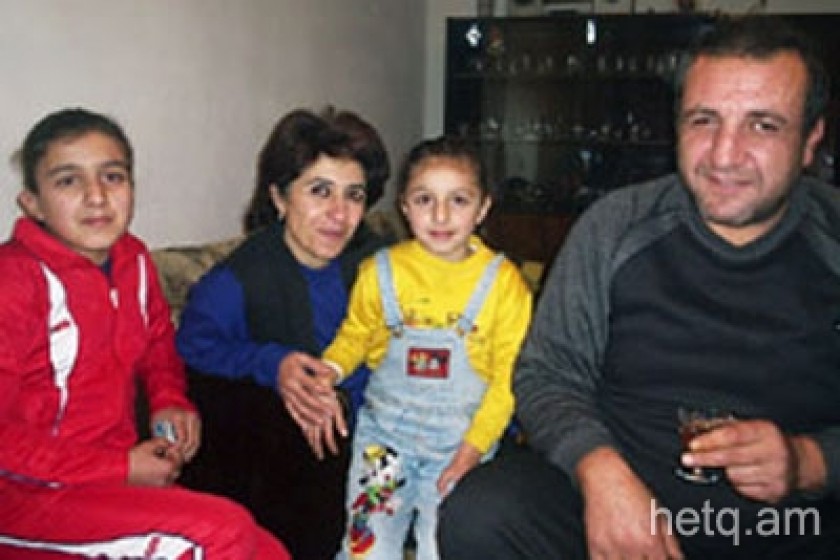
Six Months as a POW
Though he is only 40 years old, former prisoner of war Arthur Minasyan has already lost his health.
He is blind in one eye; the other is weak. He often awakened at night by pain from the old wounds on the legs and back. Nine years ago, when he decided to apply for disability status, they asked him to pay a bribe. “I wouldn't give them 100 dollars, and they gave me permanent status as third-degree disabled, for my 50% loss of vision and head injury during the Artsakh war, “ Arthur Minasyan recounted.
At the same time, they wrote in the medical report that he could work as an inspector. His pension is only 26,000 a month, barely enough to cover the electricity and gas bill and one bag of flour. His family sold their only apartment in order to keep Arthur out of prison.
The Senior Lieutenant who fought in the Karabakh war and spent six months in captivity has difficulty doing manual labor. Nevertheless, in order to feed his wife and two young daughters, he does construction work inYerevan. Once every two or three weeks he goes to Yerevan, earns money on construction jobs, goes back home to rest up, and then goes back to work. His poor health doesn't permit him to work during the winter months, so his family has to survive on his pension and help from their relatives.
“If I had a second degree disability, I would have some privileges,” Arthur said. Last year he applied to change the degree of his disability. But he couldn't stand the bureaucratic hassle, getting hold of all the necessary papers, being shuffled back and forth. “I am tired of it. I can't take it anymore.”
Arthur was in the Vanadzor volunteer brigade, and was first wounded in November 1991. Arthur's nickname was Bear, a name he got from his comrades because he ate a lot of honey. When he recovered, Arthur fought in Martakert, participated in the liberation of several villages, and was wounded again. He was wounded a third time during the capture of Kelbajar. He recalled how in 1993 they entered Kelbajar, spent a month there, and then created a unit and went to Fizuli.
“We fought unequal battles with the enemy. There were six of us and 50 of them. I was wounded and captured. It was February 17, 1994, “ Arthur said.
He spent six months as a prisoner of war. He was kept one month inBaku, and the remaining five in the Gobustan prison. The prison warden kept sheep. For the Armenian POW, beatings got to be like breakfast. In the early days of his imprisonment he was beaten so frequently that he remembers how he used to run away so fast he fell down. But the beatings and inhumanity gradually gave way to ordinary human relations. After a few months he was beaten less frequently; the prison administrators would even share some of their food with him. He befriended one criminal who, in exchange for getting his prison cell cleaned, didn't let anyone beat Arthur.
Arthur says he owes his survival to International Red Cross, whose representatives visited him, brought him food and clothes, and helped him send letters home. Ultimately he was exchanged for five Azerbaijani POWs.
In 2006 the government gave Arthur a medal of honor for his service to his homeland, and eight months ago he was awarded another medal, established by Vazgen Sargsyan in 1993.
Only three of the 25 members of the Vanadzor brigade have stayed on in the military. Arthur's health makes it impossible for him to serve in the Army. Or as he explains it, he doesn't have the right connections.
 Videos
Videos Photos
Photos
Write a comment